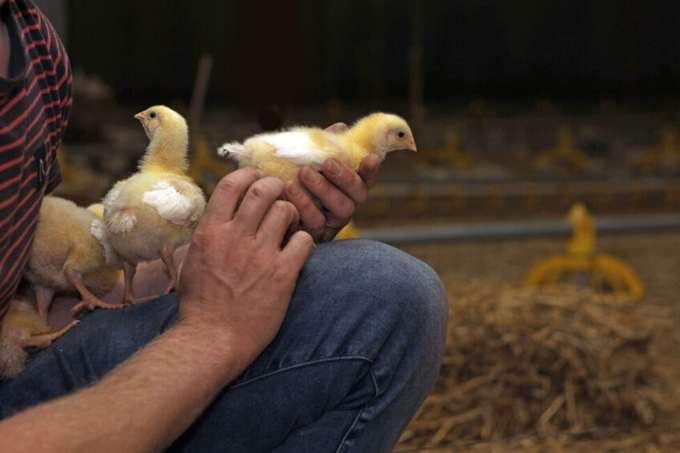November 25, 2025 | 16:57 GMT +7
November 25, 2025 | 16:57 GMT +7
Hotline: 0913.378.918
November 25, 2025 | 16:57 GMT +7
Hotline: 0913.378.918

The Sustainability Charter takes the form of a list of ambitions put forward by the sector in respect of the environment, packaging, animal welfare and antibiotics. Photo: Atelier 68
Avec president, Gert Jan Oplaat: “In the context of the European Green Deal and the Farm to Fork strategy in which the 27 EU member states committed to turning the EU into the first climate-neutral continent by 2050, the EU poultry sector wants to contribute to a more sustainable and resilient world. We aim for the best balance between the 3 pillars of sustainability: environmental, social, and economical. Our poultry sector is part of the solution, moving forward in ensuring sustainable and available food.”
Sustainability and resilience of the sector
Oplaat points out that the Avec Sustainability Charter aims to provide a clear roadmap on the key attributes leading to the best balance between the 3 pillars of sustainability on the one hand and guaranteeing the resilience of the sector in the future on the other. “The key will be to find a point of equilibrium between the pillars, and not to have an improvement on only 1 pillar with indirect negative consequences on the other pillars,” said Oplaat, adding that at a time where food security has become a major preoccupation in the EU and the world, following the war in Ukraine, Avec members are “committing to maintaining a sufficient level of production to feed the EU and the world population in a sustainable way with qualitative and affordable broiler meat”.
According to Oplaat, it is essential that consumers have a choice, too: “We want to be able to meet our sustainability goals, stay profitable as an industry, and offer a diverse choice of products to the consumer, from conventional to organic production, for every income.”
Ambitions
The Avec Sustainability Charter, which aims to pave the way for continuous improvement, takes the form of a list of ambitions put forward by the sector in the following areas:
Environmental impact
Packaging
Animal welfare
Antibiotics
The journey to sustainability and resilience in each EU country is different and must be considered and respected, said Oplaat. The Charter is designed to evolve over the years and amongst Avec’s members. In parallel, Avec invited its members to translate and adapt the Sustainability Charter to their national strategy towards sustainability.
The sustainable and resilient future of the EU agricultural sector is in the hands of producers, consumers, and policymakers. The European Union and its institutions will play a crucial role in the successful implementation of the Avec Sustainability Charter, and Avec and its members believe they each part of the solution.
Political decisions should strive for the best balance between the 3 pillars of sustainability. Oplaat: “To that end, Avec would like to submit to the European Commission a list of policy measures that are required to ensure the success of our Sustainable Charter 2022.” According to his organisation, a few important points are highlighted:
Imported products must mirror the requirements imposed on EU products – also on animal welfare.
Guarantees for a level playing field for meat imported from third countries at EU borders by increasing the frequencies of the controls should be provided.
Investment in better control of residues in meat imported from third countries to ensure EU standards are met.
Audit missions in third countries should lead to control of the whole supply chain from the hatchery to the slaughterhouse. Controls on the farm and feed mill are particularly important.
New legislation on mandatory labelling of origin for all products containing poultry meat (especially in out-of-home consumption) must be introduced.
(Poultryworld)

(VAN) Brazil's COP30 presidency pushed through a compromise climate deal on Saturday that would boost finance for poor nations coping with global warming but that omitted any mention of the fossil fuels driving it.

(VAN) Poultry farmers in the UK have been warned that they could face one of the worst winters yet for bird flu.

(VAN) Prices of main-crop paddy have risen sharply, with jasmine rice hitting 16,100 baht per tonne — the highest level in years.

(VAN) In Brazil, FAO unveiled a series of reports and initiatives showing how sustainable agrifood systems are a solution to the climate crisis.

(VAN) With names like neodymium and dysprosium, rare-earth elements sound exotic — and their perceived scarcity has only added to the mystique.

(VAN) In a new study published in Trends in Biotechnology, researchers used a gene-editing technology called CRISPR to increase a fungus's production efficiency and cut its production-related environmental impact by as much as 61%- all without adding any foreign DNA.

(VAN) A top official in Beijing’s Cop delegation says China is committed to clean energy – but US’s absence is a problem.